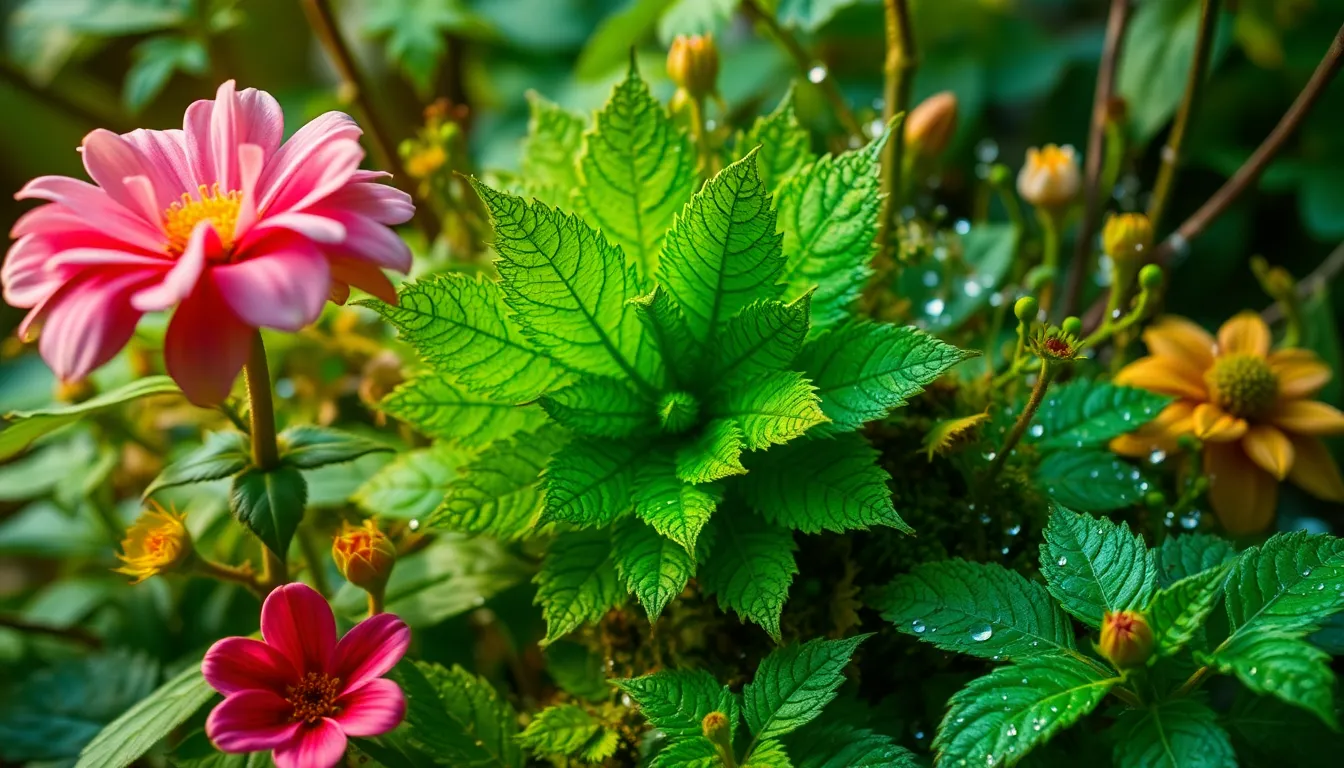The Secret World of Plant Myths: Unlocking Nature’s Stories
Introduction to Plant Myths
Plant myths are fascinating narratives that intertwine flora with human experience and cultural expression. These stories are woven into the fabric of various cultures around the globe, highlighting the significance of plants in human existence. From ancient civilizations to modern societies, plants have been revered not just for their physical attributes, but for the meanings and lessons they embody.
The connection between plants and storytelling is profound. In many cultures, plants are viewed as symbols of life, death, rebirth, and transformation. They serve as conduits for spiritual beliefs and moral lessons, reflecting the values and traditions of the communities that tell these stories.
The Role of Plants in Folklore and Mythology
Plants have always played a pivotal role in folklore and mythology, appearing as key elements in narratives that explain natural phenomena or impart wisdom. Across different cultures, various plants are imbued with unique significances:
- Oak Trees: Often seen as symbols of strength and endurance, oak trees appear in many myths, representing stability and protection.
- Sage: This herb is associated with wisdom and purification, frequently appearing in stories that emphasize healing and clarity.
- Yew Trees: With their ties to immortality and the afterlife, yew trees are often featured in tales of death and regeneration.
Symbolism of Common Plants
Plants carry rich symbolic meanings that vary across cultures and contexts. Here are some notable examples:
- Roses: Often associated with love and passion, roses feature prominently in countless love stories and romantic poetry.
- Willow Trees: These trees are often linked to sorrow and mourning, appearing in tales of loss and remembrance.
Through their symbolism, plants serve as powerful storytelling tools that convey deeper emotional truths and societal values.
Plants as Characters in Myths
In many myths, plants are not just backdrops but are personified characters that play active roles in the narratives. For example:
- The Myth of Demeter and Persephone: This Greek myth intricately weaves the story of the seasons with the cycles of life and death, showcasing the importance of the harvest and the connection to agricultural plants.
- The Tale of the Banyan Tree: In Indian mythology, the Banyan tree symbolizes immortality and is often depicted as a wise being sheltering lost souls.
These stories illustrate the profound relationship between humans and plants, emphasizing their intertwined fates throughout history.
Medicinal Plants and Their Mythical Origins
The discovery and use of medicinal plants are often surrounded by myths that explain their origins and healing powers. Many cultures have rich herbal lore that intertwines with mythic storytelling:
- Chamomile: Associated with calmness and tranquility, its mythological origins often depict it as a gift from the gods to soothe human ailments.
- Echinacea: This plant, known for its immune-boosting properties, is frequently featured in tales about protection and resilience.
These myths serve to legitimize the use of these plants, creating a narrative that connects the natural world with human health and well-being.
Environmental Lessons from Plant Myths
Plant myths often carry important environmental messages, emphasizing the need for stewardship and respect for nature. Many myths highlight the consequences of environmental neglect and the importance of maintaining balance within ecosystems:
- The Tale of the Green Man: A figure in British folklore representing nature’s rebirth, this myth teaches the importance of nurturing the earth.
- Native American Stories: Many indigenous myths emphasize the sacredness of plants and animals, conveying lessons about sustainability and harmony.
These narratives inspire ecological awareness, encouraging communities to live in balance with their surroundings.
Cultural Variations in Plant Myths
Plant myths vary significantly across cultures, shaped by geography, climate, and local flora. This diversity leads to rich interpretations of the same plant. For instance:
- Lotus Flower: In Egyptian mythology, the lotus symbolizes creation and rebirth, while in Buddhism, it represents purity and enlightenment.
- Maple Trees: In North American folklore, maple trees are celebrated for their sap and the sweetness of life, whereas in Japanese culture, they signify the beauty of impermanence.
This cultural variation enriches the tapestry of plant myths, reflecting the unique relationships humans have with their environments.
The Influence of Modern Science on Plant Myths
Modern scientific discoveries often challenge or reinforce traditional plant myths. As ethnobotany emerges as a field of study, researchers examine the relationships between plants and people, revealing new insights into the historical significance of these narratives:
- Challenging Myths: Scientific findings can debunk long-held beliefs about certain plants, encouraging a reevaluation of their roles in culture.
- Reinforcing Myths: Conversely, modern science often validates traditional uses of plants, highlighting their medicinal properties and ecological importance.
This interplay between science and mythology enhances our understanding of the natural world and the stories we tell about it.
Preserving Plant Myths in a Changing World
As globalization and modernization continue to influence cultural narratives, the preservation of plant myths becomes increasingly important. Documenting these stories ensures that future generations can appreciate and learn from them:
- Initiatives: Organizations focused on cultural conservation work to gather and share these narratives, often through storytelling workshops and educational programs.
- Community Involvement: Local communities are encouraged to share their plant-related stories, enriching the collective understanding of their heritage.
Preserving these narratives not only honors the past but also fosters a deeper connection to the natural world among contemporary audiences.
Conclusion: The Timelessness of Plant Myths
Plant myths hold a timeless legacy that continues to resonate in contemporary society. They remind us of our connection to nature and the lessons we can learn from it. As we navigate the complexities of modern life, these narratives offer wisdom and inspiration.
Readers are encouraged to explore their own plant-related stories, sharing them with others to keep the tradition of storytelling alive. By doing so, we can ensure that the voices of nature continue to be heard, enriching our lives and understanding of the world around us.




